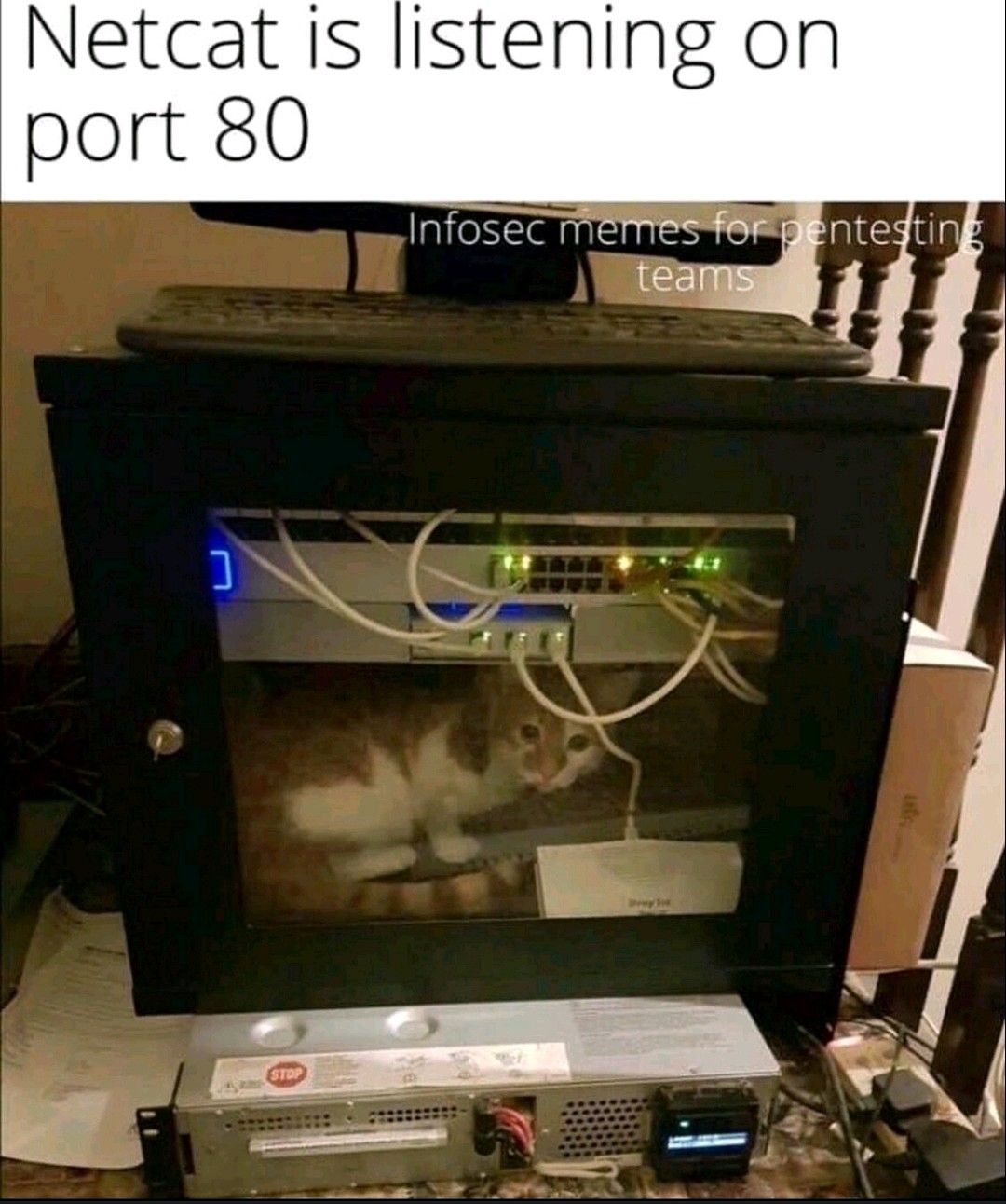Awe, isn’t that cute! We have a “NetCat” stowed away in a mini server rack. Maybe it was cold, or maybe it was looking for the USB mouse.
Ncat is a feature-packed networking utility which reads and writes data across networks from the command line. Ncat was written for the Nmap Project as a much-improved reimplementation of the venerable Netcat. It uses both TCP and UDP for communication and is designed to be a reliable back-end tool to instantly provide network connectivity to other applications and users. Ncat will not only work with IPv4 and IPv6 but provides the user with a virtually limitless number of potential uses.
Among Ncat’s vast number of features there is the ability to chain Ncats together, redirect both TCP and UDP ports to other sites, SSL support, and proxy connections via SOCKS4 or HTTP (CONNECT method) proxies (with optional proxy authentication as well). Some general principles apply to most applications and thus give you the capability of instantly adding networking support to software that would normally never support it.
Ncat is integrated with Nmap and is available in the standard Nmap download packages (including source code and Linux, Windows, and Mac binaries) available from the Nmap download page. You can also find it in our SVN source code repository.
Many users have asked for a statically compiled version of ncat.exe that they can just drop on a Windows system and use without having to run any installer or copy over extra library files. We have built a statically compiled Windows binary version of Ncat 5.59BETA1. You can download it inside a zip file here. To ensure the file hasn’t been tampered with, you can check the cryptographic signatures. If you need a portable version of a newer Ncat release, see the Ncat portable compilation instructions.
The Ncat Users’ Guide contains full documentation including many tips, tricks, and practical real-life examples! There is also an Ncat man page for a quick usage summary.
